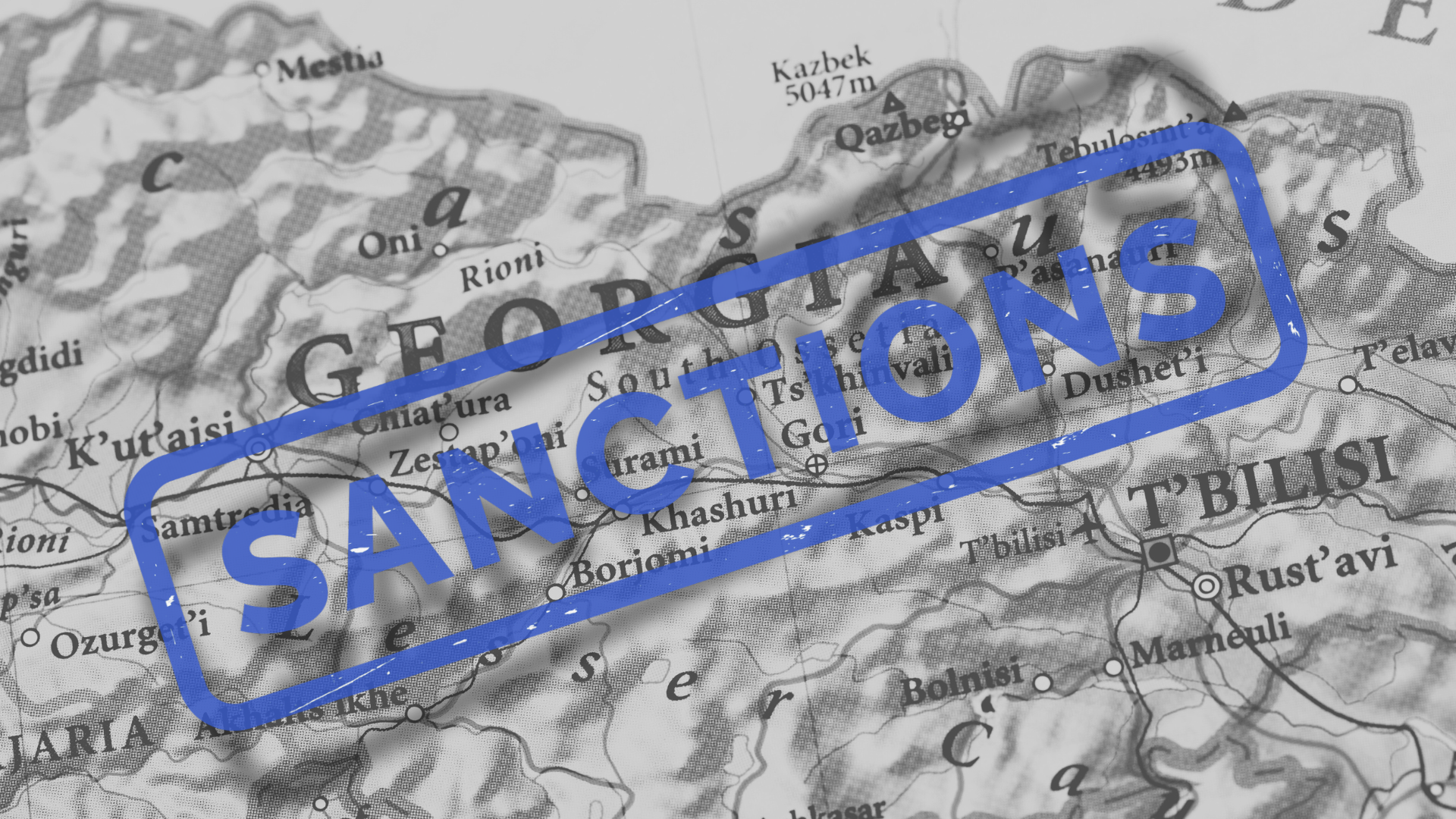Summary
Western sanctions against Russia, designed to isolate and weaken the Kremlin’s war economy, have instead generated a global “sanctions bubble”: an adaptive ecosystem of intermediaries, offshore jurisdictions, and political enablers that convert constraint into profit. At the center of this system stands Georgia, which has evolved from passive circumvention to strategic facilitation, leveraging its geography, financial infrastructure, and political flexibility to become a key node in Russia’s sanctions-evasion network.
Rather than crippling Russia’s capacity to sustain its war effort, successive sanction rounds have redirected trade and capital flows through the Caucasus, Central Asia, Türkiye, and the United Arab Emirates. These channels have allowed sanctioned goods, funds, and individuals to re-enter global markets through legal, semi-legal, and illicit means. Georgia’s economic and political elite have capitalised on these gaps, transforming re-exports, dual-use technology transfers, and permissive financial regulation into sources of revenue. As a result, the Georgian economy has become structurally dependent on Russian-linked capital inflows, turning sanctions into an instrument of enrichment rather than deterrence.
This dependency has reshaped Georgia’s political and institutional landscape. The influx of Russian money, businesses, and professionals has deepened the capture of state institutions by oligarchic interests aligned with Moscow’s economic sphere. At the same time, the Georgian government has sought to protect these interests through legislative measures that have shielded domestic actors from Western regulatory scrutiny. These developments have coincided with democratic backsliding, the erosion of Euro-Atlantic alignment, and ideological convergence with sovereigntist regimes that promote “peace through neutrality” while shielding their economies from sanction-related costs.
The weaknesses of the Western sanctions regime are both structural and conceptual. By targeting categories of individuals rather than specific financial and corporate networks, the system has blurred legal and moral distinctions, creating opportunities for evasion and undermining its own legitimacy. Fragmentation within the European Union and declining transatlantic coordination have further limited the coherence and effectiveness of enforcement. The result is a sanctions framework that produces symbolic political gains for Western states while enabling material enrichment for those it was intended to constrain.
To address these challenges, a strategic recalibration of the sanctions regime is needed. This includes shifting from broad-based designations toward targeted, precision instruments that isolate key enablers within the global evasion network; strengthening regulatory coordination among willing states; and creating structured pathways for economic and political defection from the Russian sphere of influence. The objective is not punitive isolation but strategic disruption: dismantling the protection economies that sustain kleptocratic governance in both Russia and its partner states.
The Georgian case demonstrates that sanctions, when poorly designed or inconsistently enforced, do not simply fail but transform. They create new centres of power, profit, and dependency. Reversing this dynamic is essential if sanctions are to remain a credible tool of international governance rather than an accelerant of global authoritarian capital.
Read the full piece here.
Disclaimer: The views expressed in this piece are those of the individual authors and do not reflect the views of The Foreign Policy Centre.
Dr Ilya Roubanis (PhD, EUI Florence) is Senior Fellow at the Institute of International Relations in Athens (IDIS) and Research Fellow at the Aletheia Research Institution. His business intelligence work spans energy and security, driven by HUMINT and strategic analysis across Europe and the MENA regions.

